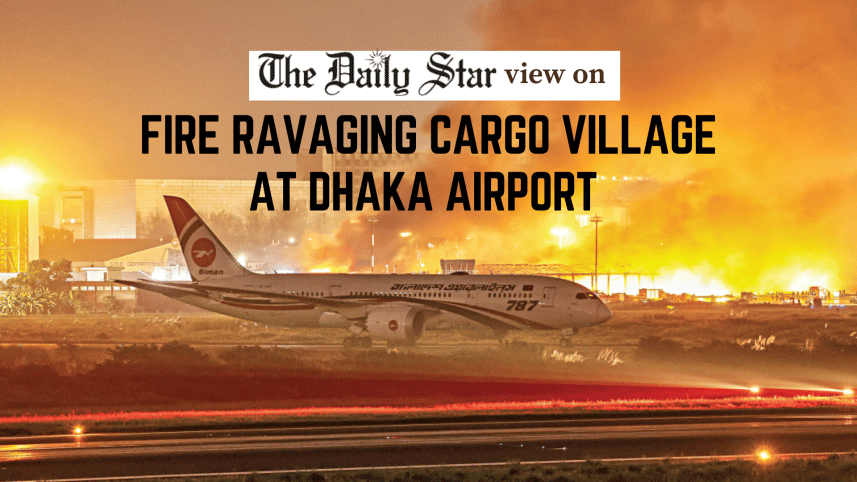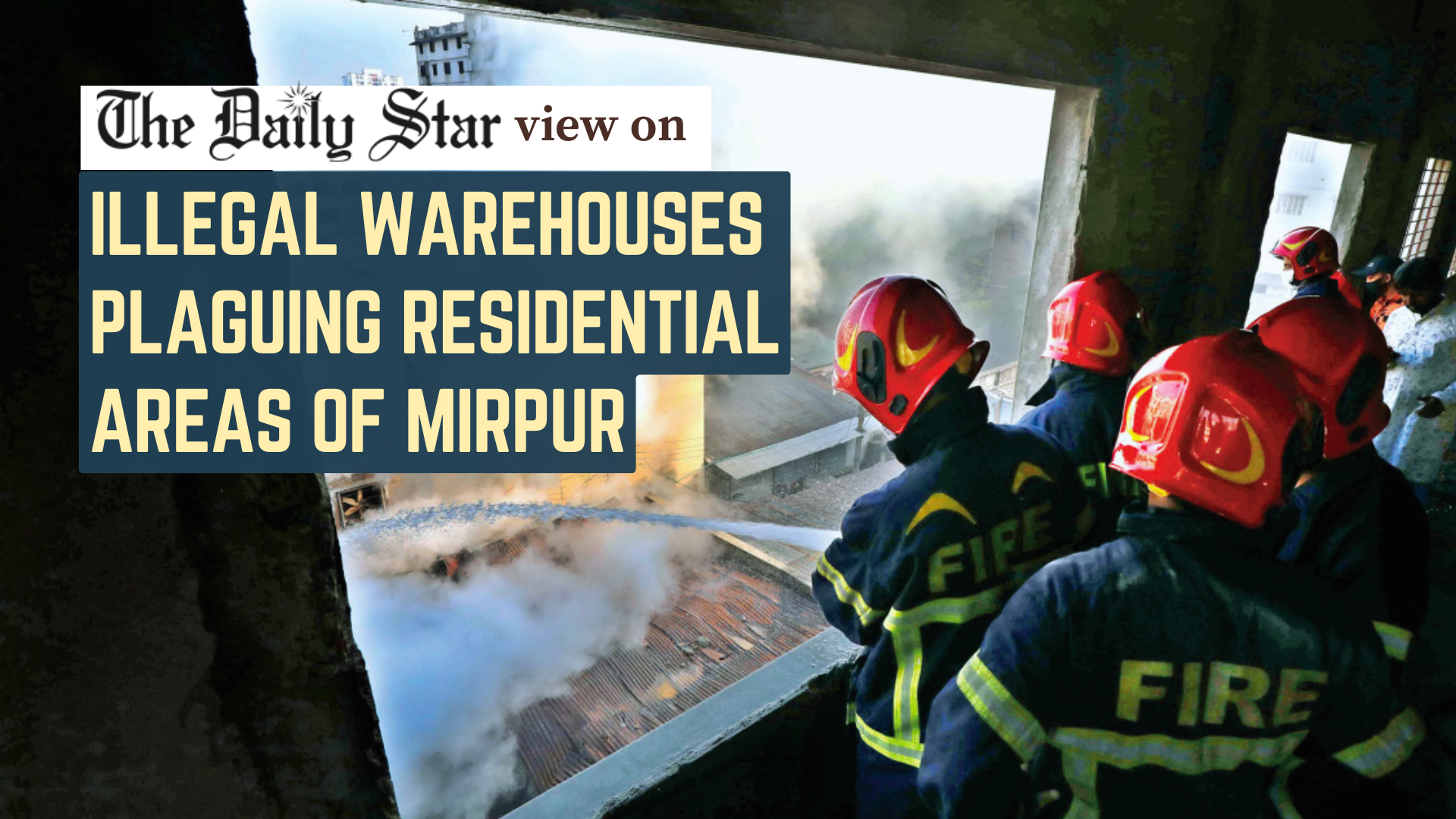Sabotage or not, the government must account for the recent fires

Three devastating fires occurring at three different sites within five days—each with significant economic implications—have raised serious concerns about our state of governance and preparedness. In particular, Saturday's blaze at the cargo village of Hazrat Shahjalal International Airport (HSIA) in Dhaka has exposed how ill-prepared the authorities were: even after deploying almost all available fire service units, it took about seven hours to contain the fire. By then, everything at the cargo complex had turned to ashes, disrupting national and international flights and leaving hundreds of passengers stranded.
It has been alleged that the HSIA authorities were initially hesitant to accept support from fire units rushed in from other parts of the capital, preferring to rely on the unit stationed within the airport compound. The Dhaka Customs Agents Association stated in a press release that a lack of coordination between the fire service and HSIA caused delays in the emergency response.
It is understandable that, as a key point installation (KPI), the HSIA complex would have extremely sensitive security protocols. But that must not prevent emergency services from accessing a disaster zone—especially in circumstances where those protocols lack sufficient provisions and capacity. According to a former director of the Civil Aviation Authority of Bangladesh, there was no hydrant installed at the cargo village. This is both shocking and unacceptable. Evidently, airport authorities have not learnt any lessons from the past fire incidents occurring in 2013 and 2017 at the same cargo village.
In the wake of the recent spate of fires, some leading business figures have expressed fears that these disruptions, coupled with slow and poorly equipped responses to emergencies, could further undermine confidence. The statement issued by the chief adviser's press wing—that if these incidents prove to be "acts of sabotage" meant to sow panic and division, they will succeed only if we allow fear to overtake reason—rather raises the question of why the government is suspecting foul play in the first place. We expect the government to act on its words that any credible evidence of sabotage or arson will be met with "a swift and resolute response."
The other two fires—one at the Chittagong Export Processing Zone (CEPZ) and the other in Dhaka's Mirpur area, both linked to garment production—have again exposed the failure to enforce fire safety laws and building codes. It is beyond comprehension how the CEPZ authorities could have allowed production to commence in a building that did not have a safety compliance certificate.
Whether these fire incidents were acts of sabotage or not, one thing is clear: in all three cases, there have been governance failures on multiple counts. Lack of enforcement, inadequate inspections, and poor contingency planning do not bode well for our capacity and competence. It also raises questions of accountability: why have officials in charge, for instance, failed to take appropriate precautionary measures in time? Installations vital to the nation, such as airports and EPZs, must take all possible precautions to prevent any repetition of such disasters.



 For all latest news, follow The Daily Star's Google News channel.
For all latest news, follow The Daily Star's Google News channel. 
Comments